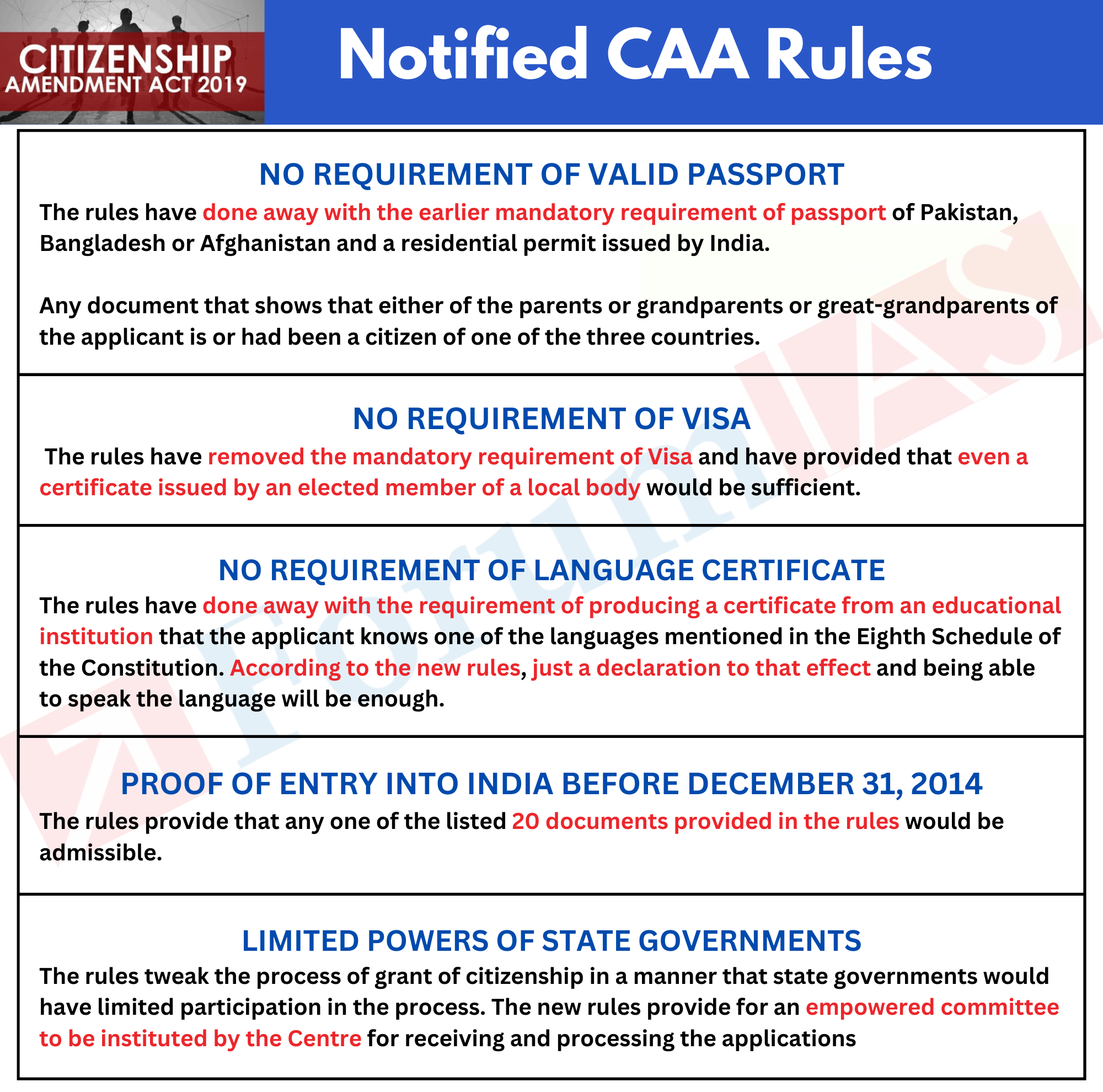The notification of the Citizenship Amendment Act (CAA) rules marks a significant development in India’s immigration policy, following the passage of the controversial legislation in 2019. The CAA, introduced by the government led by Prime Minister Narendra Modi, aims to provide expedited citizenship to persecuted minorities from neighboring countries, including Hindus, Sikhs, Buddhists, Jains, Parsis, and Christians from Afghanistan, Pakistan, and Bangladesh.
The 2019 Bill proposed several key provisions, which have now been formalized through the notification of rules:
Expedited Citizenship: One of the central provisions of the CAA is to grant citizenship to eligible immigrants from specified religious communities who entered India before December 31, 2014, fleeing religious persecution in their home countries. The rules provide guidelines for the application process and eligibility criteria for obtaining citizenship under the CAA.

Source: Forum IAS
Exclusion of Muslims: The CAA excludes Muslims from its purview, sparking criticism from opposition parties and civil society groups. Critics argue that the law discriminates against Muslims and violates the secular principles enshrined in the Indian Constitution, which guarantees equality to all citizens irrespective of their religion.
SOURCE:- WION
Provisions for Stateless Persons: The rules also address concerns regarding the status of individuals who may be rendered stateless due to the implementation of the CAA, particularly in conjunction with proposed exercises such as the National Register of Citizens (NRC) and National Population Register (NPR). The government has stated that no individual will be rendered stateless as a result of these measures, and provisions will be made to address any such cases.
Humanitarian Considerations: Proponents of the CAA argue that it upholds India’s humanitarian ethos by offering sanctuary to persecuted minorities. They contend that the law provides a lifeline to vulnerable communities facing religious persecution in their home countries, ensuring their safety and security in India.
National Security: The government maintains that the CAA is essential for national security, as it distinguishes between illegal immigrants and those seeking refuge due to religious persecution. By providing a legal pathway to citizenship for eligible immigrants, the CAA aims to address security concerns while upholding India’s commitment to humanitarian principles.
Overall, the notification of CAA rules formalizes the implementation of the legislation, providing clarity on the application process and eligibility criteria for obtaining citizenship. However, the CAA continues to be a subject of intense debate and controversy, reflecting competing visions of nationhood, identity, and citizenship in India’s diverse society.
Share your views in the comments

